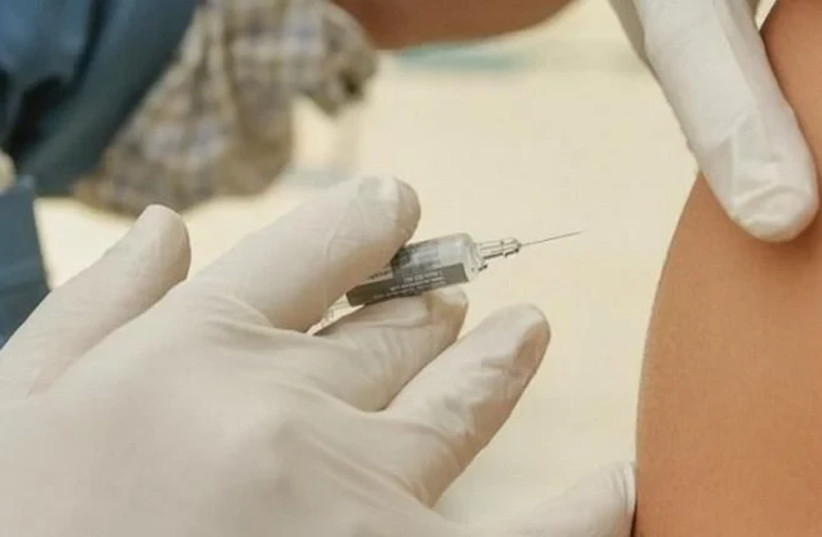The Health Ministry announced on 5 June that a 10-week-old unvaccinated baby from Jerusalem died of whooping cough. The baby was treated at Hadassah-University Medical Center at Jerusalem's Ein Kerem and died about three weeks ago.
The baby first started showing symptoms at five weeks old and was admitted to the hospital two weeks later. An epidemiological investigation discovered that neither the baby nor his mother had been vaccinated against whooping cough. Anyone who had been in contact with the baby was checked and given medicine to prevent them from developing pertussis, the formal name for whooping cough.
The Health Ministry stated that since February, there have been numerous cases of pertussis among babies and toddlers – and the number is on the rise. A whooping cough outbreak is now believed to be plaguing the Jerusalem area. Out of the 215 whooping cough cases recently reported in Israel, 183 of them are in the Jerusalem area, according to the ministry.
The vast majority of cases in the Jerusalem area live in ultra-Orthodox neighborhoods in Jerusalem, Beit Shemesh and Beitar Illit, where the population tends to be less punctual about vaccinations, or just avoids vaccinating kids at all. Data shows that out of 183 patients with whooping cough, 82 are babies under a year old, and many are under six months old. Most of these babies aren't registered at tipat chalav, the well-baby clinics where vaccinations are usually given, so they aren't vaccinated against the disease.

What is whooping cough?
Whooping cough is an infectious and aggressive respiratory disease caused by the pertussis bacterium and is considered very contagious. The disease attacks some immunosuppressed adults but mostly affects babies. Its chief symptoms are fever, runny nose, and a persistent, strong cough that sounds like a whoop and won't go away. Pertussis is especially dangerous in babies under the age of one, and about 1%-2% of those babies who get whooping cough end up dying.
What is the whooping cough vaccine?
The pertussis vaccine is given to all newborns in Israel six times within the first year: Two months after birth, four months after birth, six months after birth, and a year after birth. This is part of the vaccines given to newborn babies in Israel against five different childhood diseases. Boosters are administered in the second and eighth grades.
The Health Ministry also recommends that pregnant women get vaccinated against whooping cough between 27-36 weeks of their pregnancy. The vaccine is supposed to provide antibodies to both the mother and fetus against the infectious disease, which claims the lives of about two babies on average in Israel every year.
The disease is considered dangerous and contagious, but it practically doesn't exist in areas where vaccination rates are high. This is because when the majority of the population is vaccinated, a kind of herd immunity is created, so the bacteria isn't present in the general population.
The vaccine is the most effective treatment against pertussis. Since antibiotics don't significantly change the course of the disease, the main treatment is to alleviate the symptoms.
A decline in vaccination rates
Tami Alcalay, the head of the Maccabi Healthcare Services nursing division, said that since the COVID-19 crisis ended, there has been a global decrease in vaccination rates among adults and children.
Medical professionals say that this is due to vaccine fatigue, which indicates a decrease in people's willingness to get vaccinated with the various routine vaccinations. This is likely due to the large number of coronavirus vaccines administered in recent years. However, it's very important to make sure that babies and children receive routine vaccinations, as this is the best way to maintain your family's health and public health with herd immunity.
